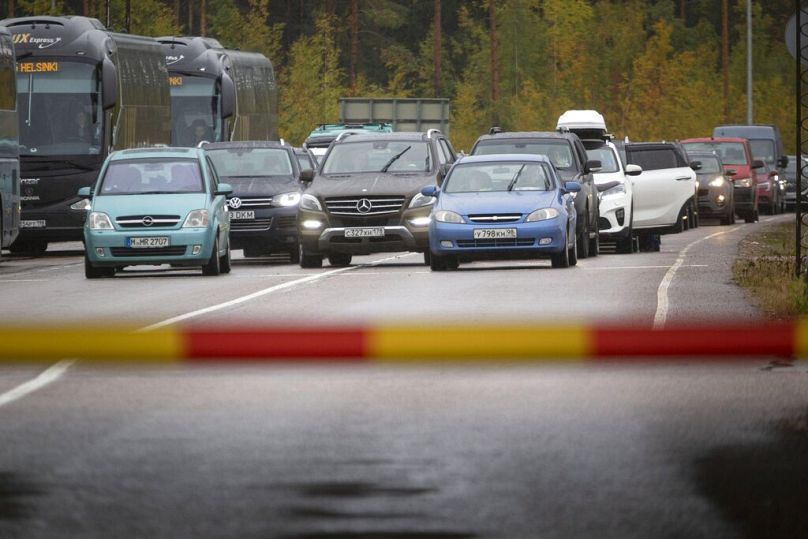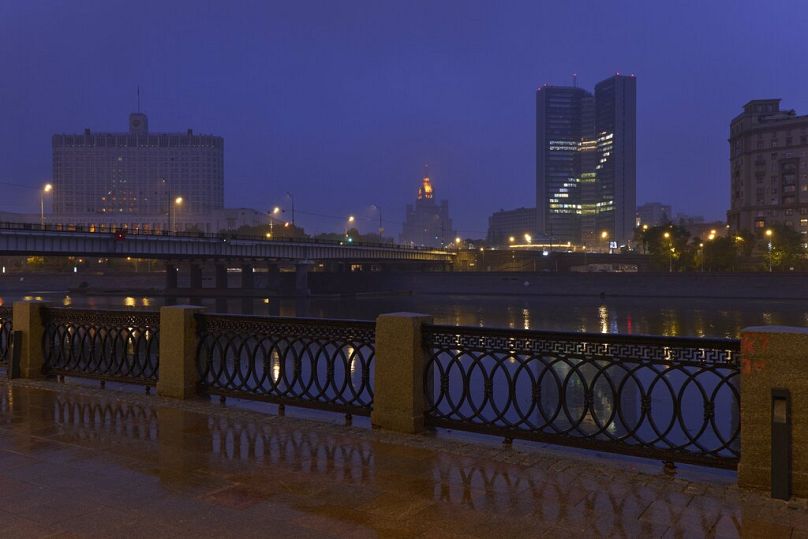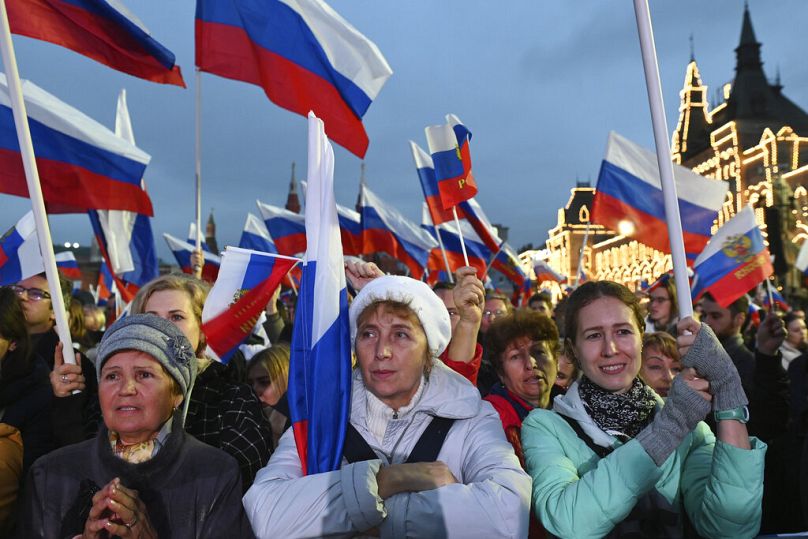Many face extra hassle; some even fear being called up to serve in Ukraine.
Western sanctions and the public outcry over Russia's war in Ukraine has meant that many foreigners have already left Moscow.
Those that remain are mostly long-term residents with families or those who've not let the conflict cloud their appreciation of the city.
“It’s not a perfect place,” one Moscow expat told Euronews. “But no matter what anyone says Moscow is still one of the greatest cities in the world.”
Life for expats who are still there has changed immeasurably.
With the Russian banking system heavily sanctioned, accessing and transferring money has also become a constant struggle.
Most foreigners have started using cryptocurrency to access money that they hold abroad.
And with constant rumours circulating around the city and often cryptic government announcements, expats have heavily relied on online forums for information and advice.
One man posting asks which European city he should relocate to with his family; another asks what airline will allow them to take their pet. Conversely, one man considering moving to Moscow and enquiries about what the IT job market is like at the moment.
Lengthy waits and interrogations
Foreign nationals, particularly those with American, British, and Ukrainian passports, say they are facing lengthy waits and interrogations when they enter Russia.
“Nearly every time I've come back during wartime has been different,” said Mark, a British man still living in Russia. “The longest I was held was five and a half hours.”
He says border officials at the airport he travels through in Moscow usually take his fingerprints and check the applications and messages on his phone.
They have also on occasion downloaded information from his phone, he claims.
Another expat in Moscow said that if the foreigners don’t speak any Russian, the border officials at the airport will simply detain them until they have someone who can translate for them.
As a result, many Europeans -- instead of going by air -- are now leaving and entering Russia via the land border with Estonia and Finland.
Direct flights to Europe ceased earlier in the year due to the ban on Russian airlines travelling through European airspace.
It means the cost of flights to the few European locations still available has soared.
Matters were exacerbated by the Kremlin’s announcement on 21 September that an initial 300,000 reservists would be called up to serve in Ukraine.
Authorities claimed those drafted would come from the existing pool of military reserves, aged between 18 and 27. However, there have been widespread reports online of men above this age and with no military experience being ordered to report to their local drafting centre.
Exact figures for how many Russian men have left the country since the mobilisation began are hard to obtain.
Kazakh Interior Minister Marat Akhmetzhanov said that at least 200,000 Russian men had arrived in Kazakhstan alone since September.
Russian men working in the banking and IT sectors have so far been exempt from the mobilisation, as Russian authorities reportedly believe there would be too much disruption to the Russian economy if workers in these sectors were subject to the draft.
'A friend of mine got a knock at the door'
Foreigners in Moscow are also seeing the impact of the mobilisation and mass exodus of young Russian men.
One German who works at a professional services firm in Moscow said younger men from his office have all left and were now working remotely outside of Russia.
“Delivery men have disappeared overnight and there are a lot more women driving taxis and Yandex [a popular ride-sharing app in Russia],” the man adds.
With the arrival of the cold weather and the mobilisation, Moscow is “much gloomier”, Mark says. “During the daytime, the city’s completely dead.”
“A friend of mine got a knock on the door and was handed a draft letter,” says Mark.
The friend was not Russian and only renting the apartment, “so the letter was meant for the landlord’s sons”.
“My friend had to call up his landlord and tell him that papers had been issued for his sons. The landlord then had to try and get his sons out of the country before they could be given the papers,” says Mark. “There’s a lot of that going on.”
Medical exemptions are also increasingly hard to obtain. Doctors are reportedly reluctant to issue the letter for fear of repercussions from the Russian authorities.
“And even when you do get the letter, you can’t be sure that the draft officer will accept it,” says one Muscovite.
Doctors and other medical professionals, including women, are themselves at risk of being drafted and sent to treat soldiers on the frontline.
“If you’re any sort of medical profession in this country there is an expectation that if there is a war you will join up,” says Mark. “I know a female doctor who is Russian, and she was told she couldn’t leave the country.”
'I don't know anyone willing to die for this war'
Whether dual Russian citizens will be drafted or whether Russian spouses will be allowed to leave the country with them has been a regular discussion among expats.
After the Kremlin announced the mobilization, the British Foreign Office issued advice that “British nationals holding Russian passports should be aware that they may be in scope for mobilisation, as the Russian government does not recognise dual nationality for Russian nationals in Russia and treats dual nationals as Russian nationals.”
One South American national who had applied for Russian citizenship this year was reportedly given his new Russian passport along with a letter telling him to report to a drafting centre shortly after the mobilisation was announced.
Euronews spoke with Daniel, a European living in Moscow with his family who had acquired Russian citizenship in 2021.
“I’m a few years above the draft age but it’s a big worry,” he says. “I’m hoping that having a large family will give me an exemption.”
Traditionally, men with more than three children are exempt from military service in Russia.
“I don’t know anyone who is actually willing to die for this war,” says Daniel. “I know lots of people who broadly support Russia and that war but not enough to want to fight.”
Please note names have been changed to protect people's identities.














